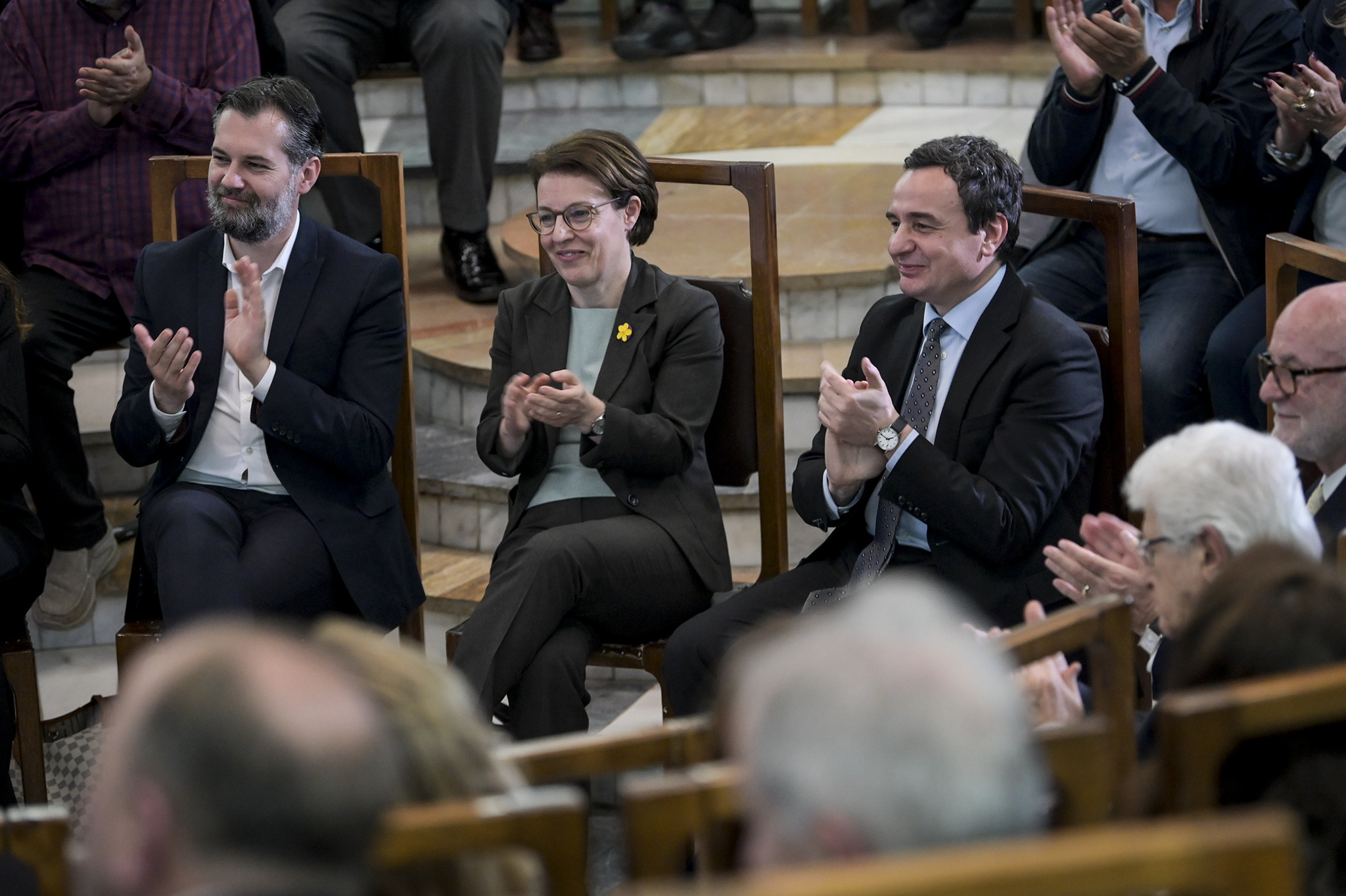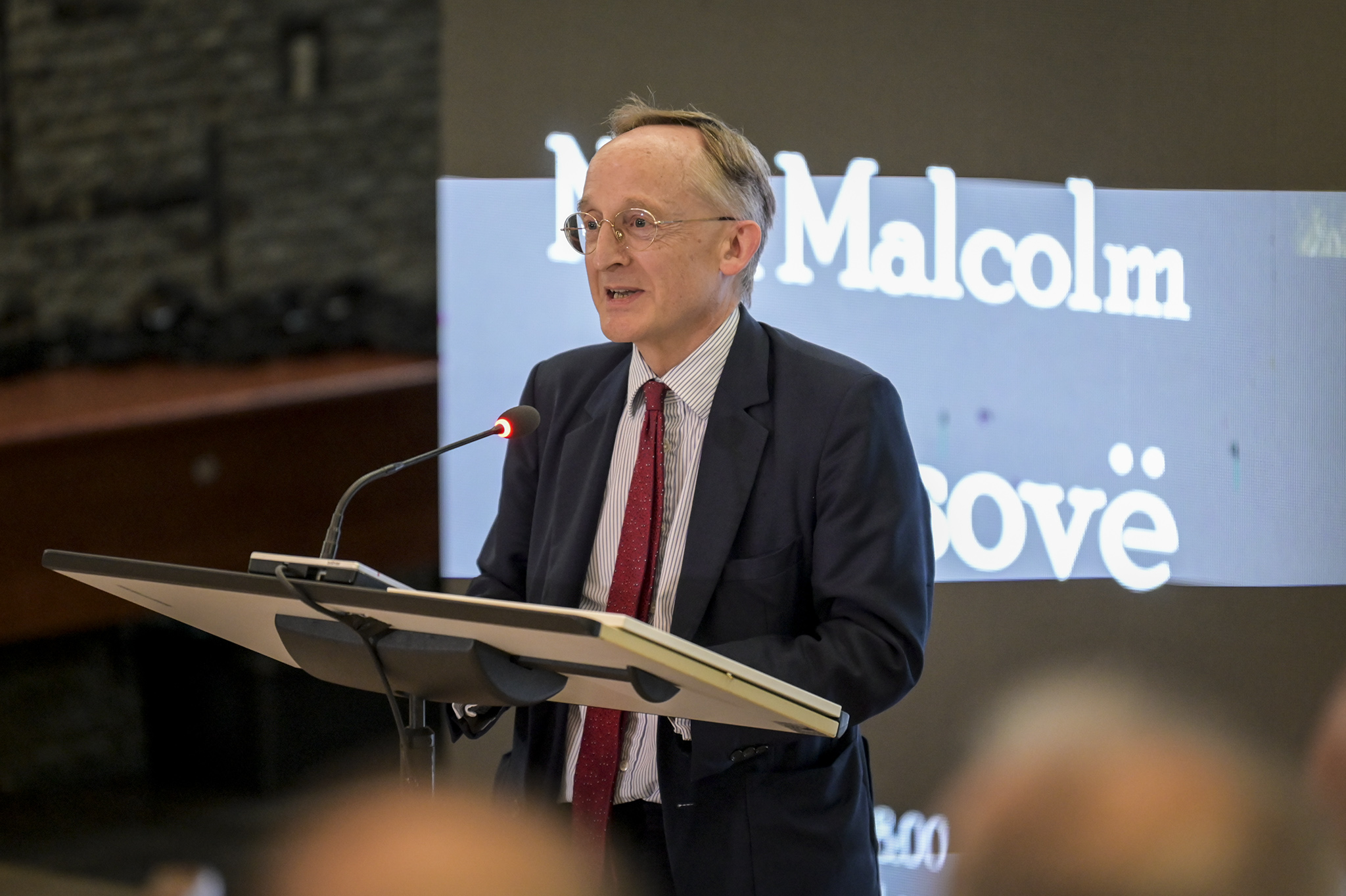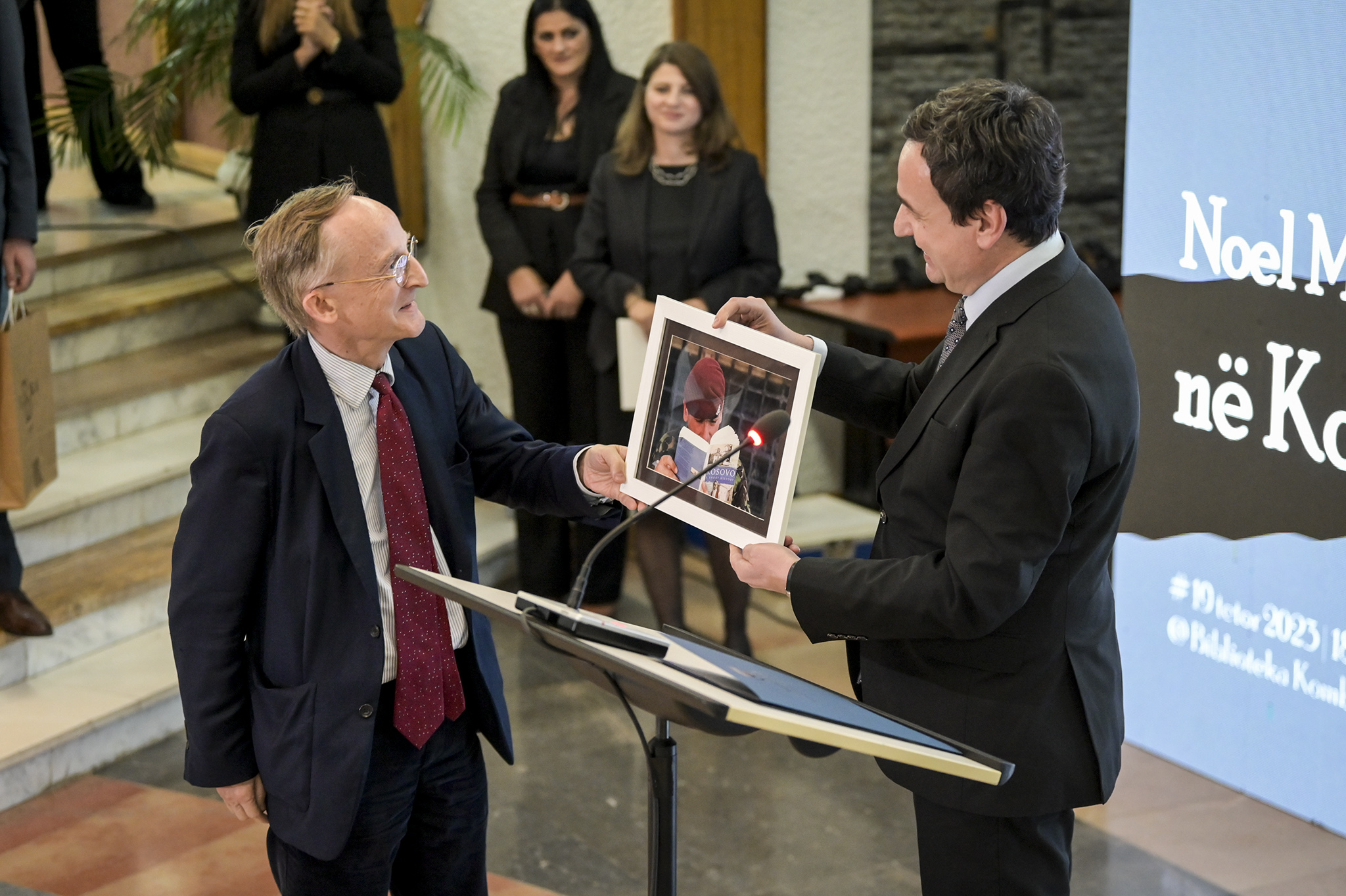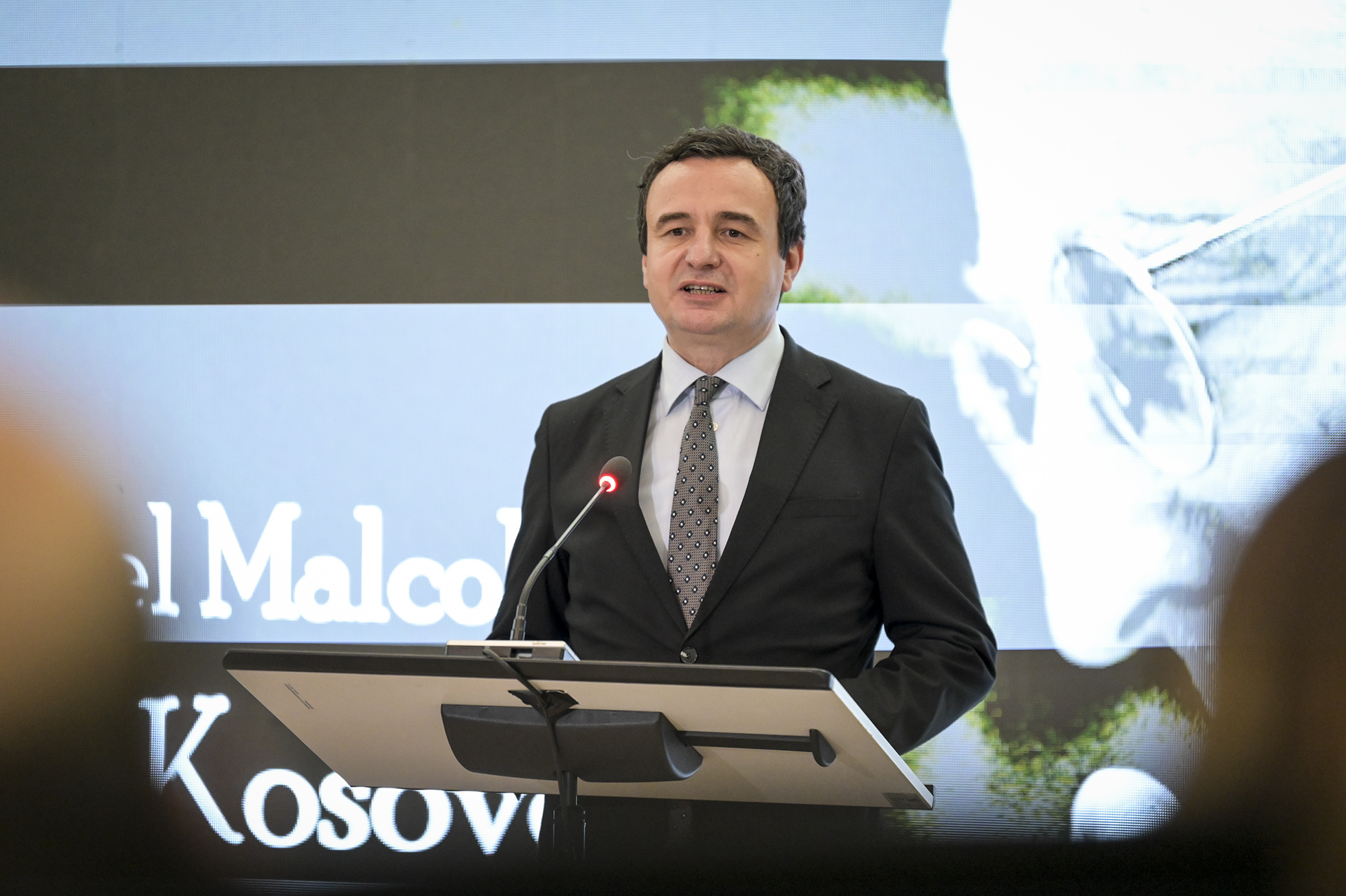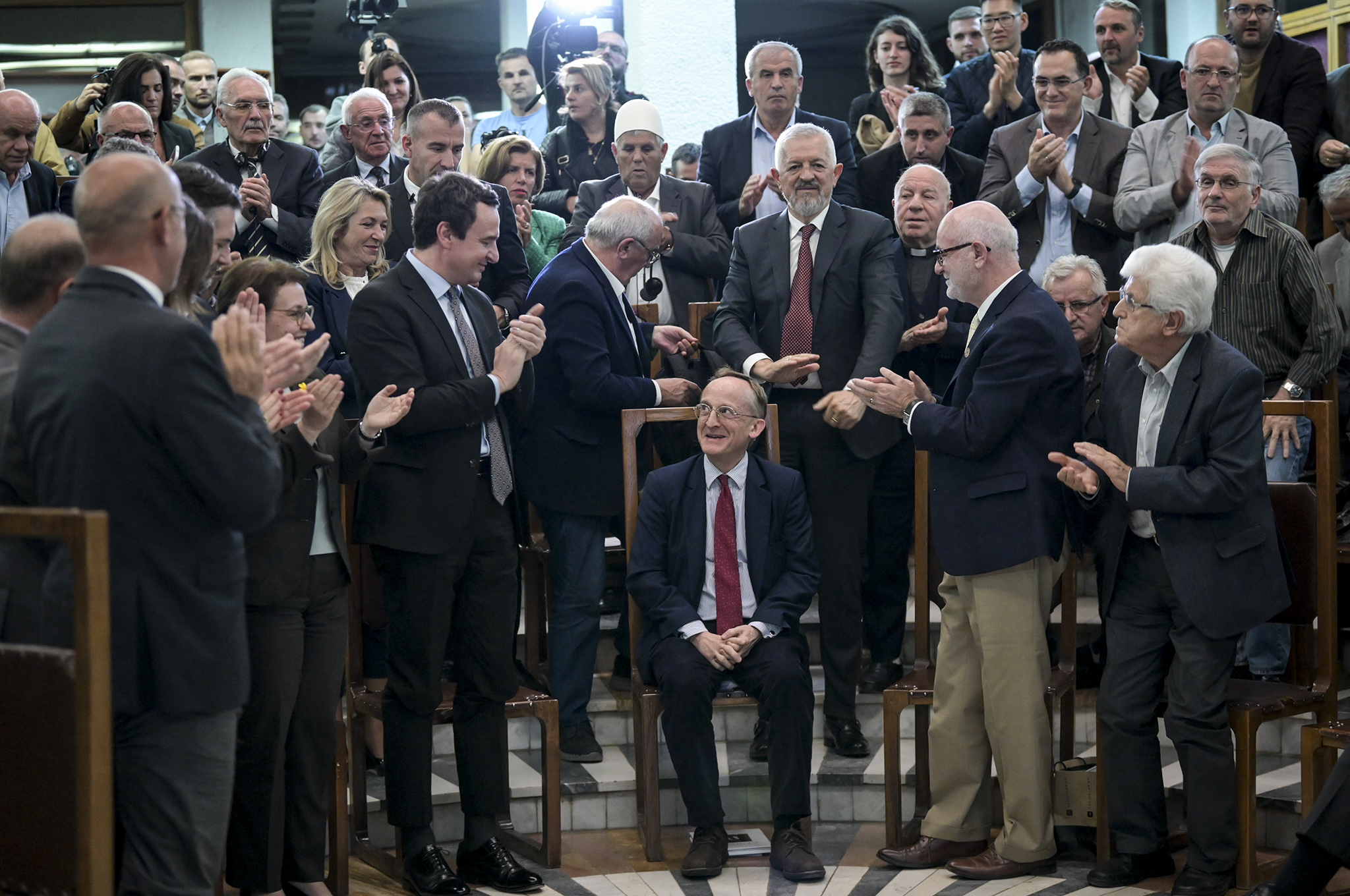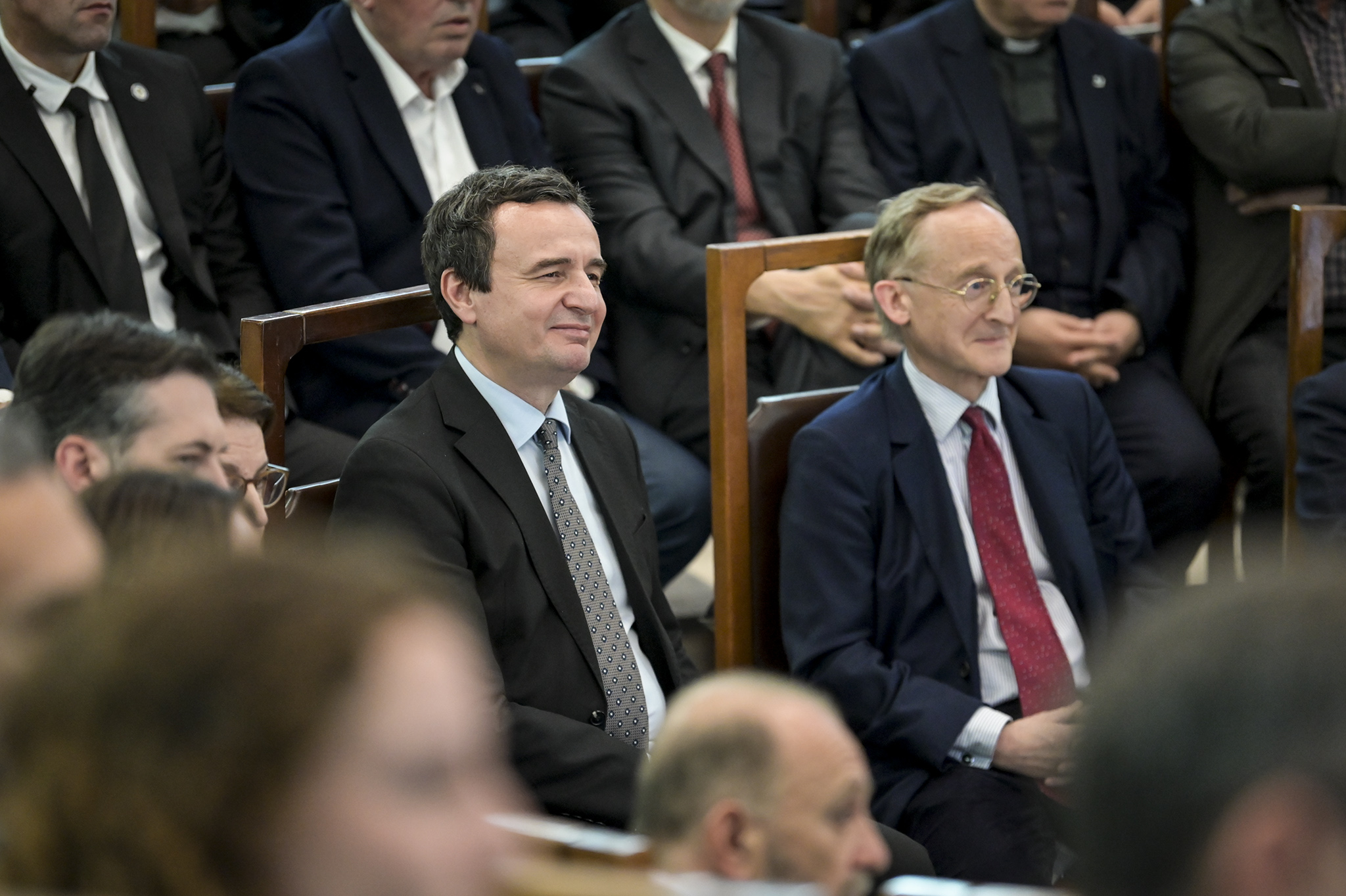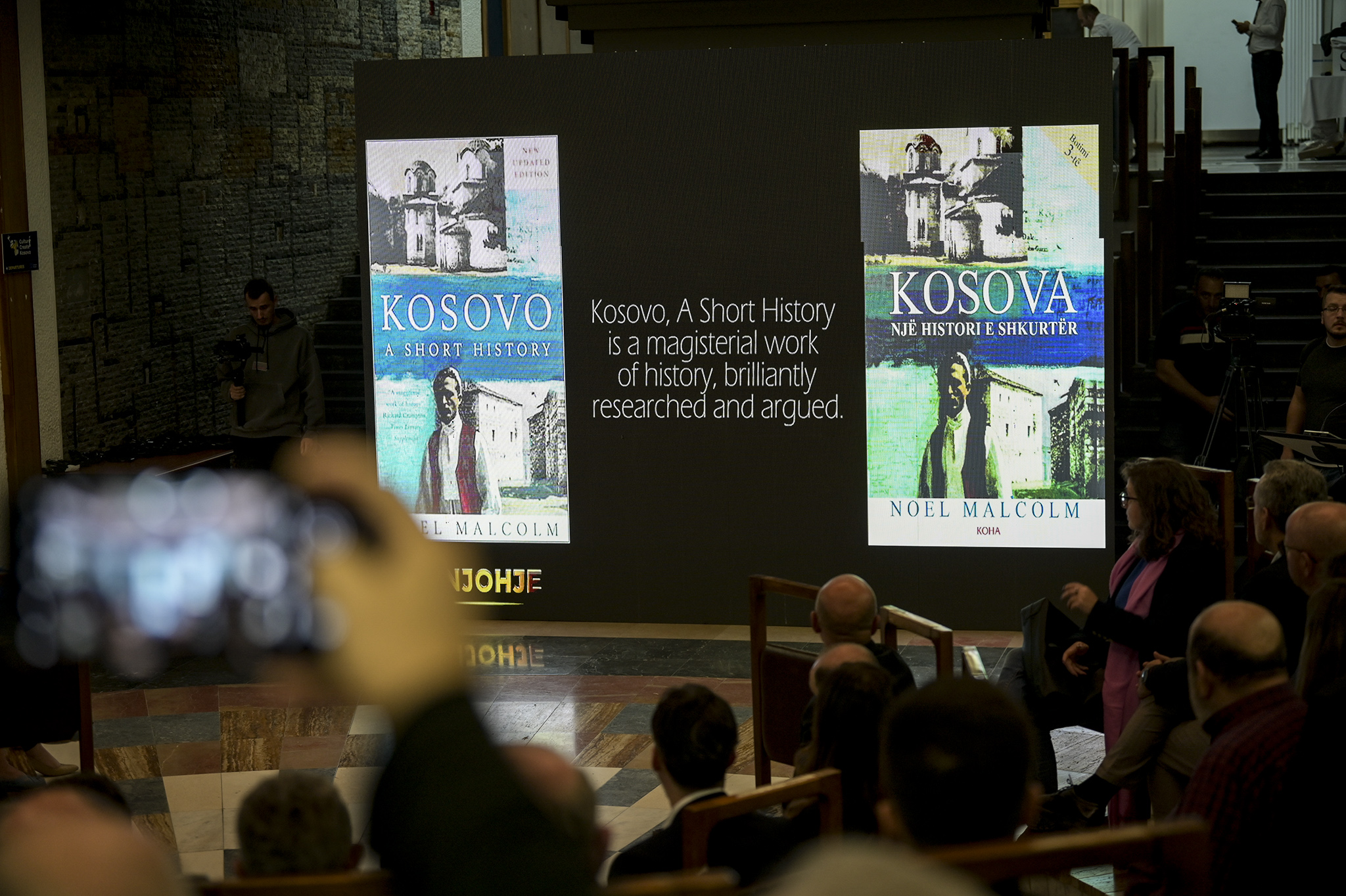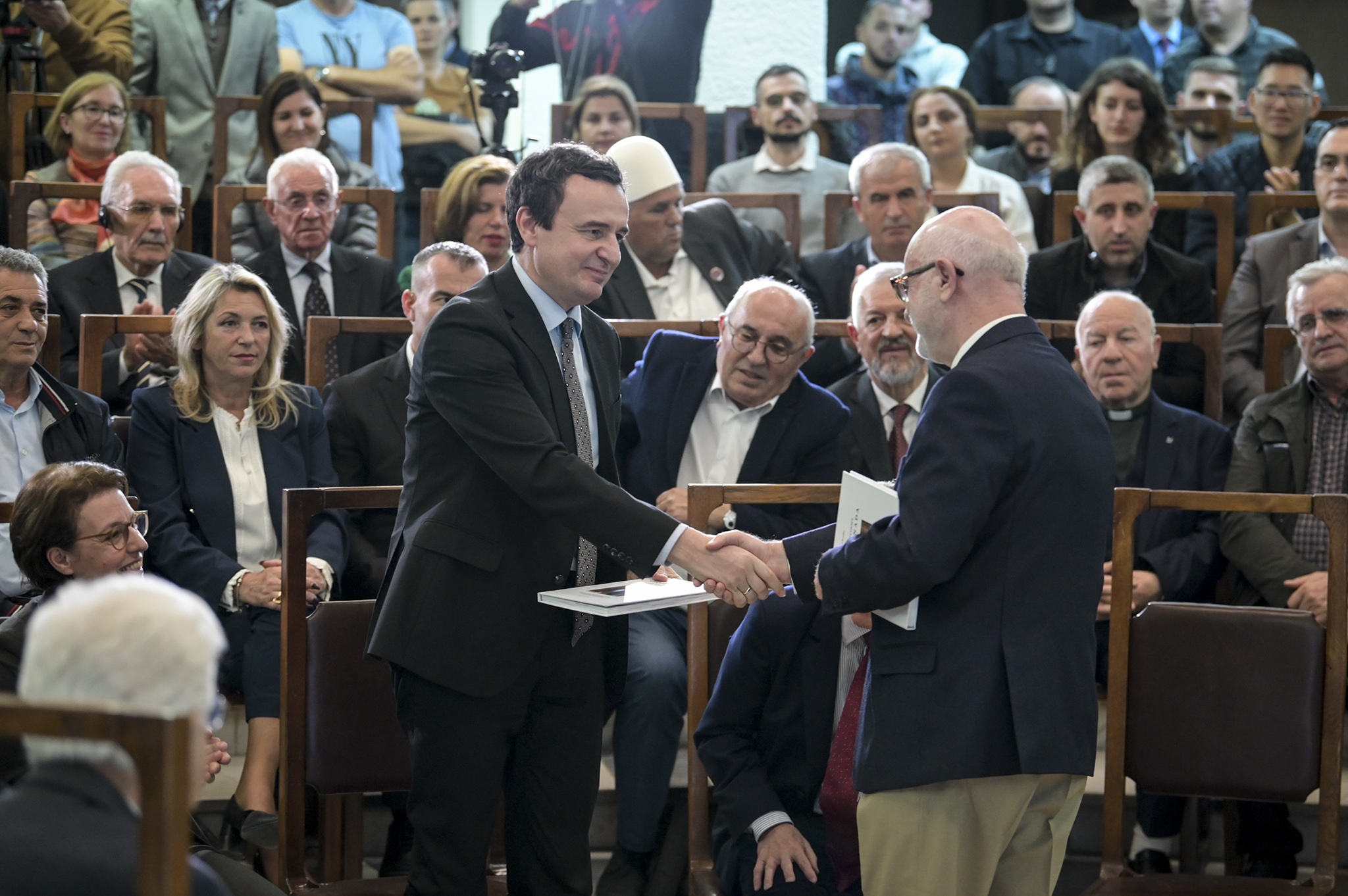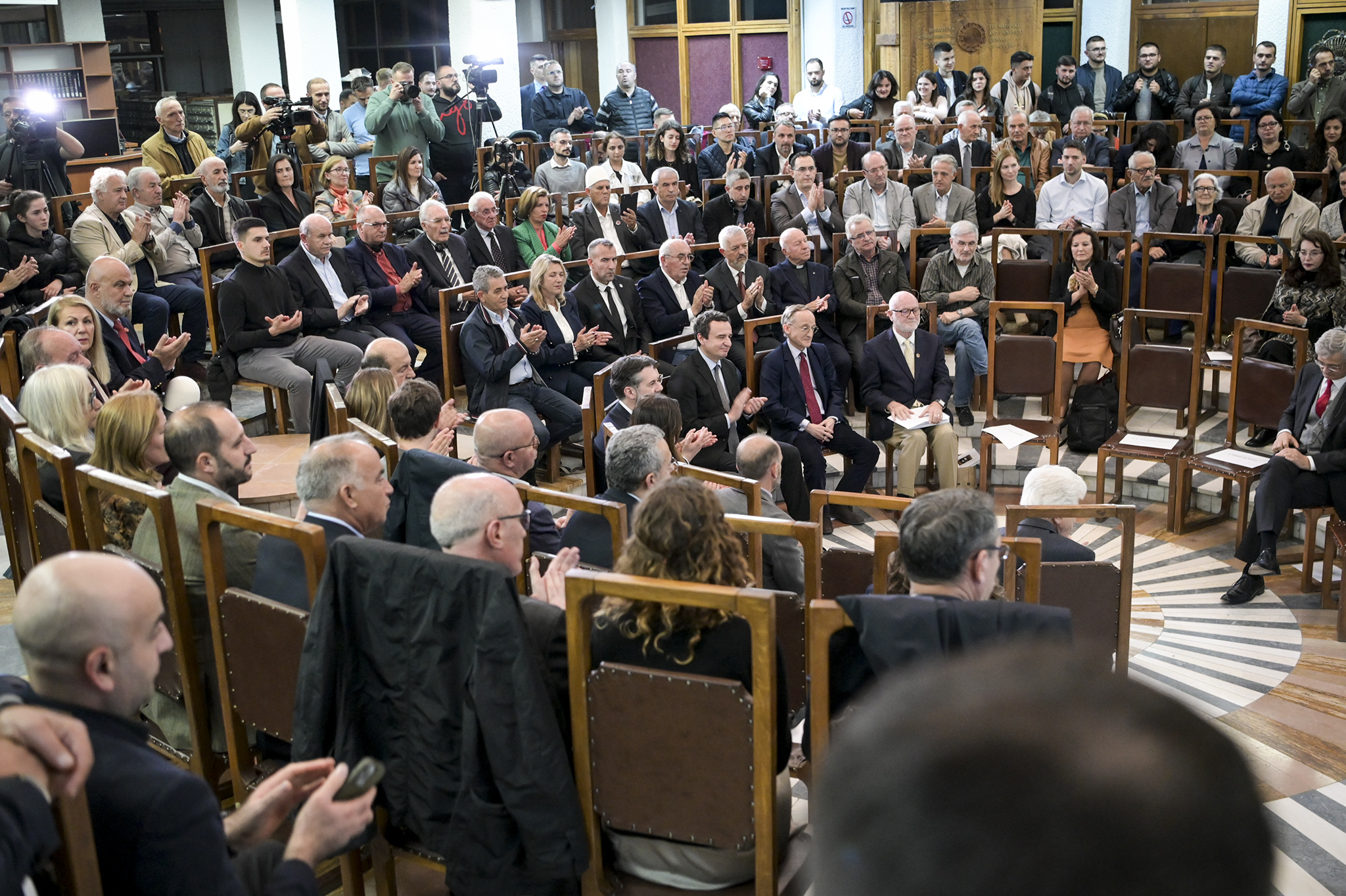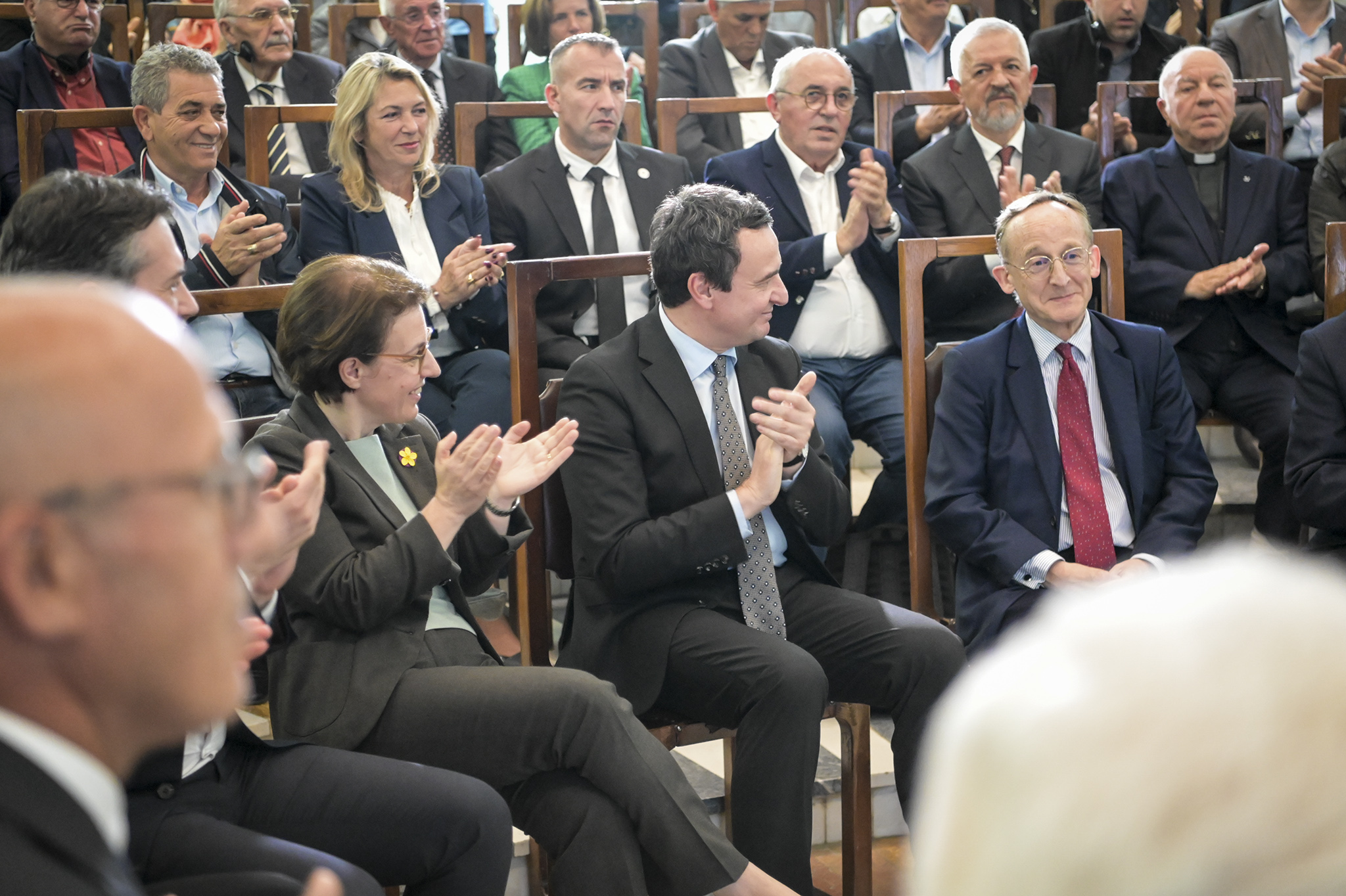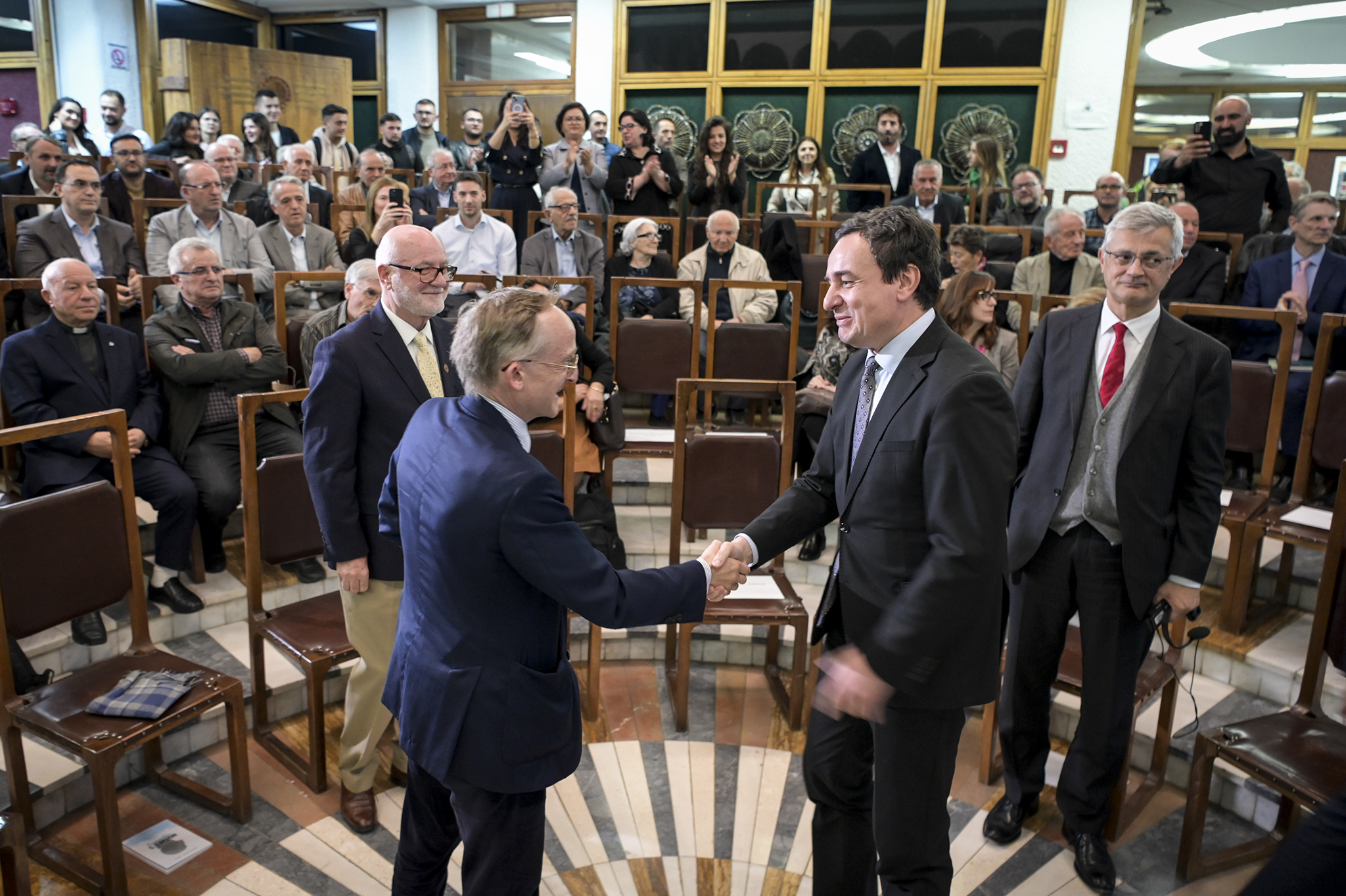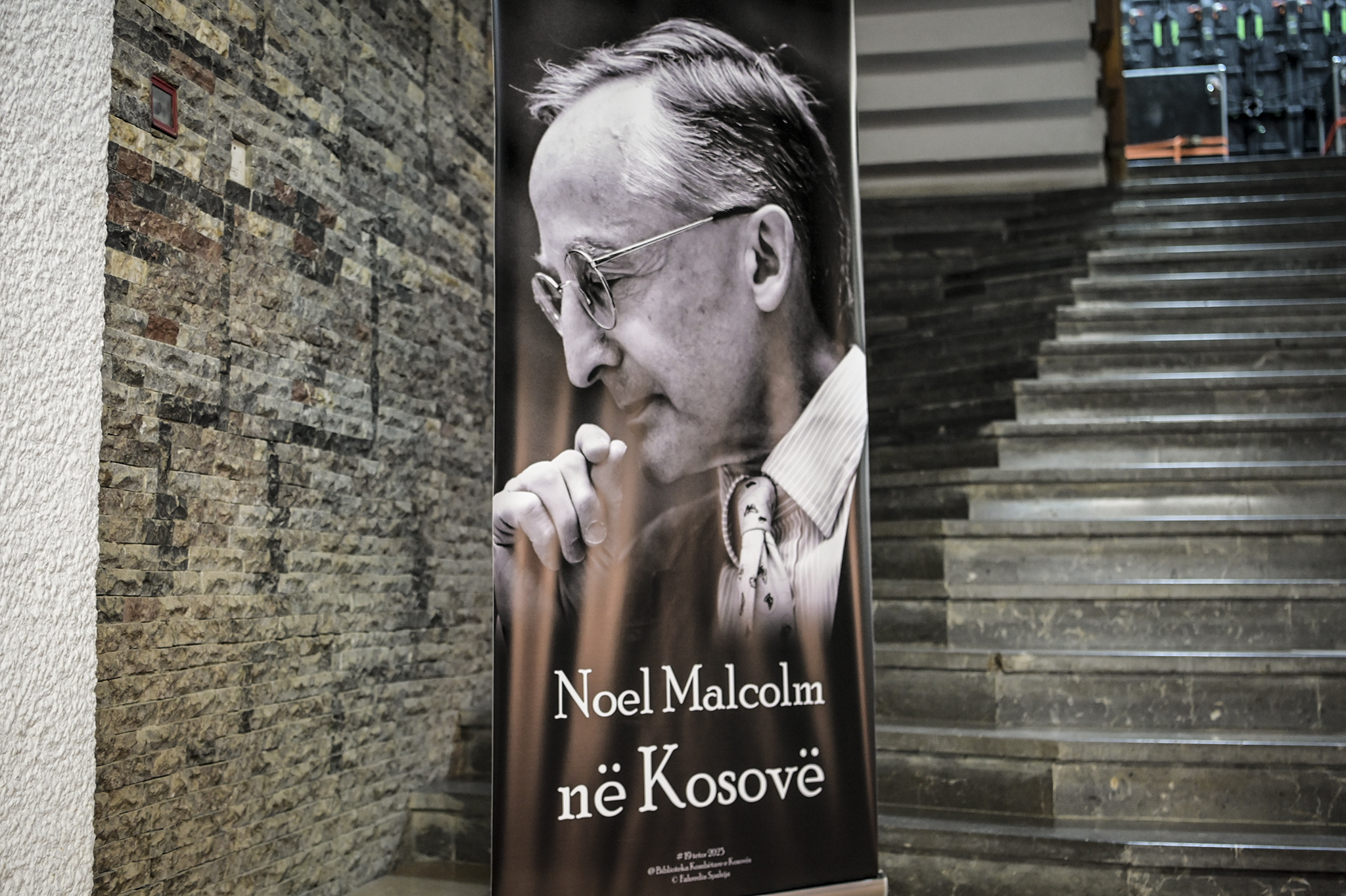Prishtina, 19 October, 2023
The book “Kosova: a short history” helped a lot to orient the Western public, whether academic or political, in relation to the historical truth about Kosovo, said the Prime Minister of the Republic of Kosovo, Albin Kurti, at the premiere of the documentary film dedicated to the work of Sir Noel Malcolm.
Prime Minister Kurti highly appreciated the contribution of Sir Noel Malcolm and the book written about Kosovo, after an intensive research through archival sources and documentary publications, in studies of Albanian historiography and Serbian historiography, as well as in Balkanological publications.
Through this work, one can talk about a special line of view and rational interpretation towards the history of the Balkans, said the Prime Minister.
Appreciating his figure, the prime minister said that it was an honor and a pleasure to have Sir Noel Malcolm in Kosovo today, who had thought of writing this book for the Western public, with the idea of confessing and clarifying by explaining and explaining documenting and arguing for Kosovo, which was on the verge of war.
“And indeed this book helped a lot to orient the Western public, whether academic or political, in relation to the historical truth about Kosovo. Even more so that “Kosova: a short history” was written after an intensive research through archival sources and documentary publications, in the studies of Albanian historiography and Serbian historiography, as well as in Balkanological publications. Through this work, one can talk about a special line of view and rational interpretation towards the history of the Balkans”, said the Prime Minister.
With the best impressions from the documentary about him and the highest praise for his historiographical works, Prime Minister Kurti thanked Sir Noel Malcolm, and wished him good health and success in academic affairs.
Prime Minister Kurti’s complete speech:
Dear Sir Noel Malcolm,
Dear Minister Gërvalla,
Minister Çeku and Nagavci,
Dear Ambassador Mal Berisha,
The honorable academic, Professor Rexhep Ismajli,
Dear director of the National Library, Mr. Fazli Gajraku,
Ladies and gentleman,
Dear attendees,
As a person who is very fond of film and cinematography, I know that it is very difficult to speak because I have to address an audience that has just seen a film. Especially a film documenting the work of historian and journalist Sir Noel Malcolm, with the second episode, because there is a before and an after, whose profile is as amazing as his written work. Nevertheless, I have the pleasure of addressing you this evening, wanting to share with you an episode that I believe is special.
In mid-June 1999, when NATO troops entered Kosovo, among the thousands of photographs that were taken in those days of Kosovo’s liberation, a Norwegian KFOR soldier, Kenneth Andresen, took a photograph that may has not received much attention, but which Daut Dauti mentioned in this film. I am talking about the photograph in which a British soldier can be seen, sitting somewhere in Pristina, reading the book “Kosovo: A Short History”, written by Sir Noel Malcolm.
I asked my staff to print and frame this picture for us to look at together and give to Mr. Malcolm because in my view, this picture captures reading history and making history at the same time. “Reading history and making history” – this picture could be titled, in which the British soldier is reading the history of Kosovo, as he is also making the history of Kosovo, committing himself to the liberation and peace in our country that has just had gone through a harsh and genocidal war due to the occupation and aggression of Serbia.
Just a few days before this photo was taken, the book “Kosovo: A Brief History” had been reprinted for the second time within a short period, after it was first published in 1998 by the author Sir Noel Malcolm, which today we have the extraordinary pleasure and honor to welcome him to Kosovo, to Pristina and to be here among us, he thought of writing this book for the Western public, with the idea of confessing and clarifying by explaining, and explaining by documenting and arguing about Kosovo , which was on the verge of war.
And indeed, this book helped a lot to orient the Western public, whether academic or political, in relation to the historical truth about Kosovo. All the more so that “Kosova: a short history” was written after an intensive research in archival sources and documentary publications, in the studies of Albanian historiography and Serbian historiography, as well as in Balkanological publications. Through this work, we can talk about a special line of view and rational interpretation towards the history of the Balkans. I myself have often suggested this book to my international friends, as well as to activists and colleagues in Kosovo.
And when I happen to meet and talk more deeply with various foreign diplomats and politicians, I know that those conversations take place sooner or later in international offices, it seems to me that even when we have peace, a battle takes place. But this battle is not between men but between books. And so often it reminds me because it seems to me that it is a battle between the books of Sir Noel Malcolm, that is Kosovo and Bosnia a short story, and on the other hand another book, which I believe loses the battle, “Balkan Ghosts” by Robert Kaplan.
Since it was published, the book “Kosova: a short history” earned the epithet of a key reference work for anyone who wants to get to know the history of Kosovo more widely and more deeply. From then until now, Sir Noel Malcolm has only deepened his studies on historical topics, publishing other texts on Pjeter Bogdani, on the Kelmendi tribe, on Crypto-Christianity, on Ali Pasha Tepelena and others. Recently, I found out that the book “Useful Enemies” has been translated into Albanian and is expected to be published here in Pristina soon.
However, in my tastes, of your books, I liked “Imperial Agents” the most, and I can’t wait to see the next episode of the documentary film about the Albanian families Bruti and Bruni in the Mediterranean world of the 16th century. A deep and detailed study, such as “Imperial Agents”, about the involvement and role of Albanians in the political and historical developments between the Ottoman Empire and the Republic of Venice in the geopolitics of the Mediterranean before 500 years, and I think it does this book, a very special work, because perhaps analogous to the 21st century, with Fernand Braudel’s “Mediterranean” work in the 20th century.
With the best impressions from the documentary about you and the highest praise for your historiographical works, Sir Noel Malcolm, we remain full of curiosity for more historical studies from you. Wishing you good health and success in your academic endeavors, thank you very much. Thank you very much.
Last modified: October 20, 2023
